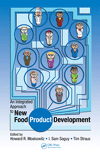Good Times, Bad Times
When wheat prices skyrocket, it’s a good thing for wholesale bakers. At least, that’s what some industry contrarians recently suggested to me.
Throughout history, the argument goes, high wheat prices have forced good bakers to operate more efficiently, to uncover innovative ways to drive out costs, to invest in their facilities and to adjust their product mix and develop new items to drive sales. Moreover, high commodities also allow bakers price increases that they normally couldn’t get when prices are low because they can prove to their customers how much the cost of doing business is rising.
Historically, there might be some merit to this discussion, but currently, the snack and baking industries are in an environment that’s lacking a few historical precedents, according to Thomas Kuk, president of the American Society of Baking (ASB).
Kuk suggests that there now are more demands on the supply of commodities than ever before. Perhaps the biggest X-factor is the fuel-versus-food debate. High oil prices and the recent surge in ethanol, he says, have pushed corn prices to the moon. Wheat prices also have jumped, he adds, because the market couples them to the price of corn.
Moreover, the fact that a drought hammered farmers growing hard red winter wheat last year didn’t help matters, and who knows what all the hedge funds are doing to commodity costs. The whole food-versus-food discussion has become such a big issue that Flowers Foods talked about it with analysts during its February Web cast.
Fortunately, high prices have prompted farmers to plant significantly more acres of wheat and corn this year. Moisture levels in core farming areas seem adequate at this time, but it’s not going to be enough.
Yes, high prices are here to stay for the near future because demand is too strong and supply is so weak. Sure, bakers and snack producers are getting pricing, but it’s not covering all the increases in commodities, health benefits and energy costs.
The irony, Kuk notes, is that corn is not the best ingredient for producing ethanol. Cheaper, non-food ingredients such as cellulose are much more efficient, but the technology to extract ethanol from switchgrass or wood chips is still emerging and probably not ready for mass production for at least three years.
If it weren’t for government subsidies, corn might not even be profitable. For that reason and others, he adds, the high price of commodities is an issue that’s not going away any time soon.
“It’s something that the industry is going to have to deal with for years to come,” he says.
For many bakers, the good news is that some of the major players in the industry are struggling and, thus, shedding money-losing or marginally profitable business. This has created a huge opportunity for their competitors. As they say, one man’s garbage is another man’s gold.
How much are we talking about? Hundreds of millions of dollars, easily. Just look at Interstate Bakeries’ performance over the last few years. According to its long-awaited financial statements, which recently were filed, IBC sales dropped from $3.5 billion in fiscal 2003 to $3.06 billion in fiscal 2006. I’ll guarantee that $440 million in business didn’t disappear into thin air.
In these difficult times, Kuk says, the broader issue for bakers and snack producers is sustainability, which includes managing costs, getting pricing and more. It’s a major theme that a panel of industry experts will discuss at the society’s meeting in Chicago on March 7.
Moreover, the ASB’s conference will address the fuel-versus-food debate on March 5. Count on me being there. When it comes to food and fuel, the only thing I know is that they both have something to do with gas in the end.





